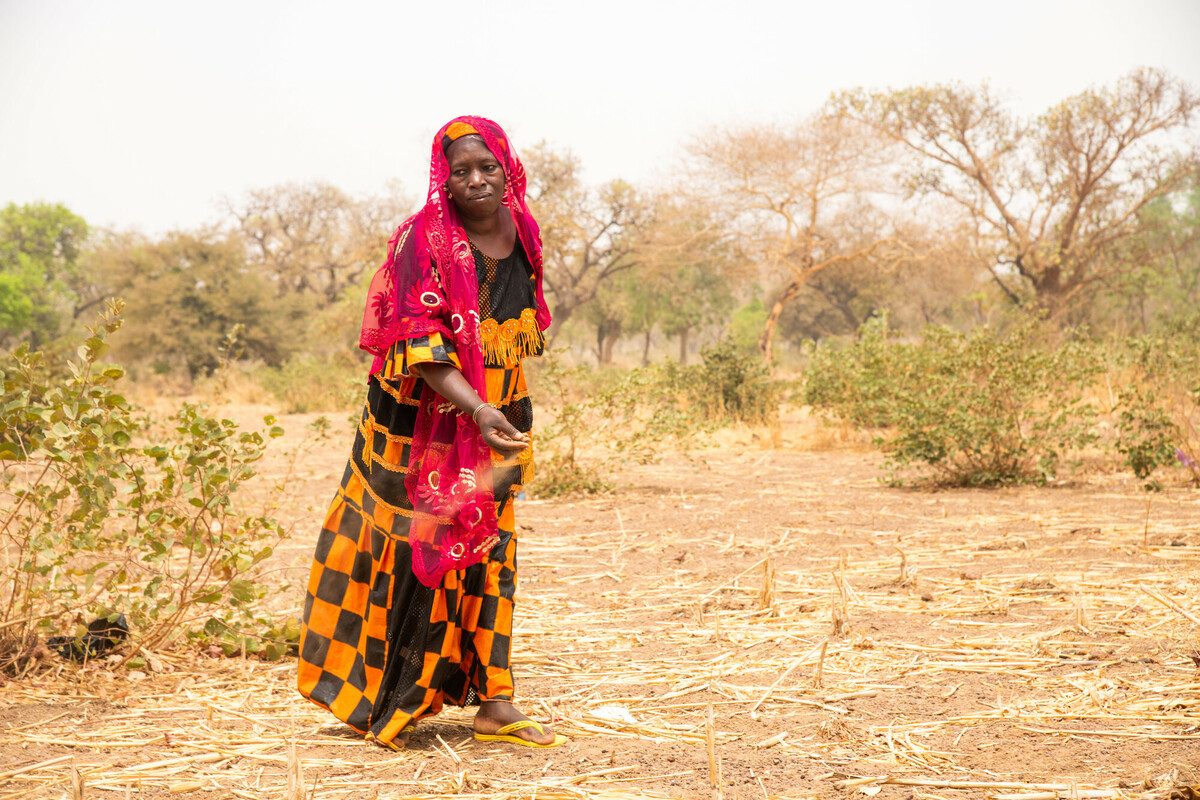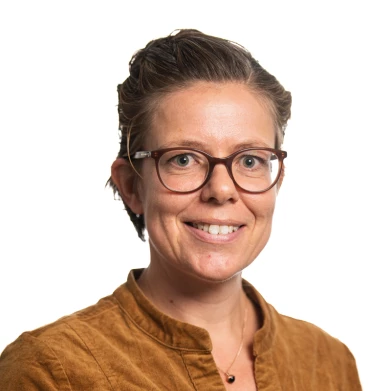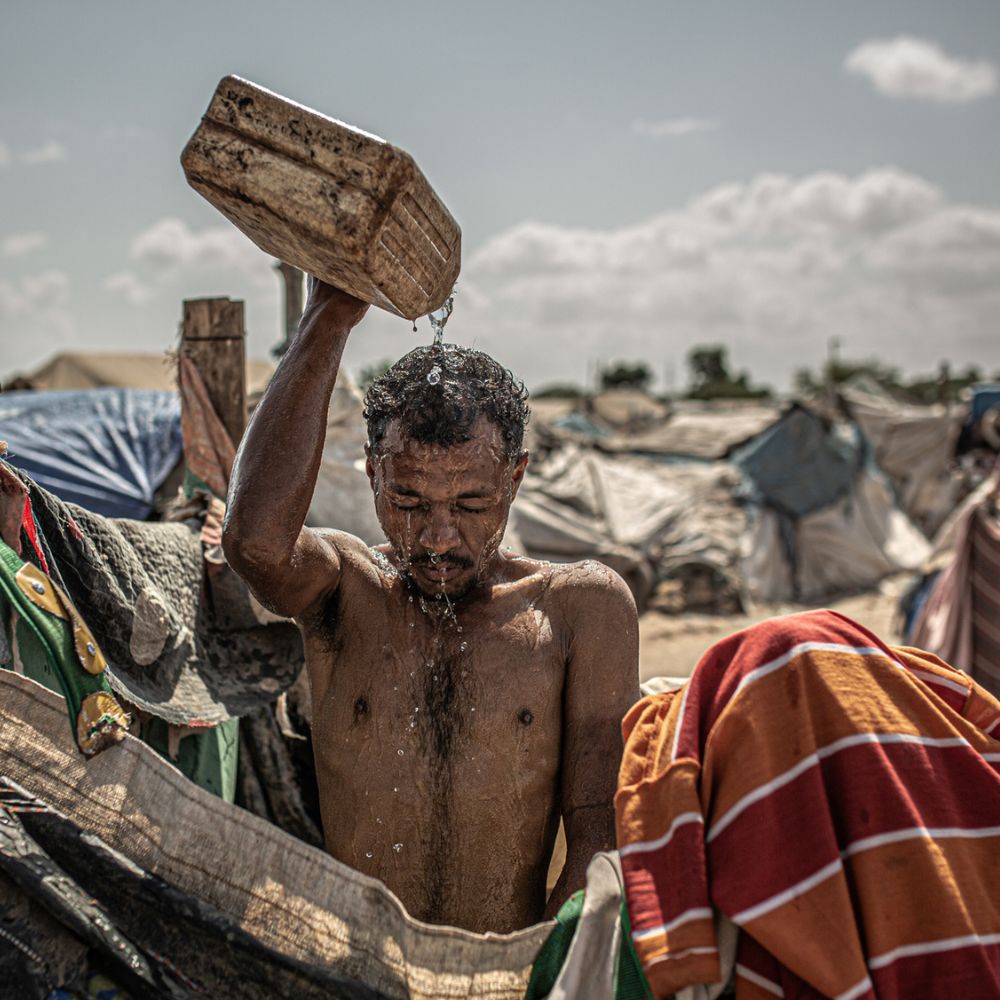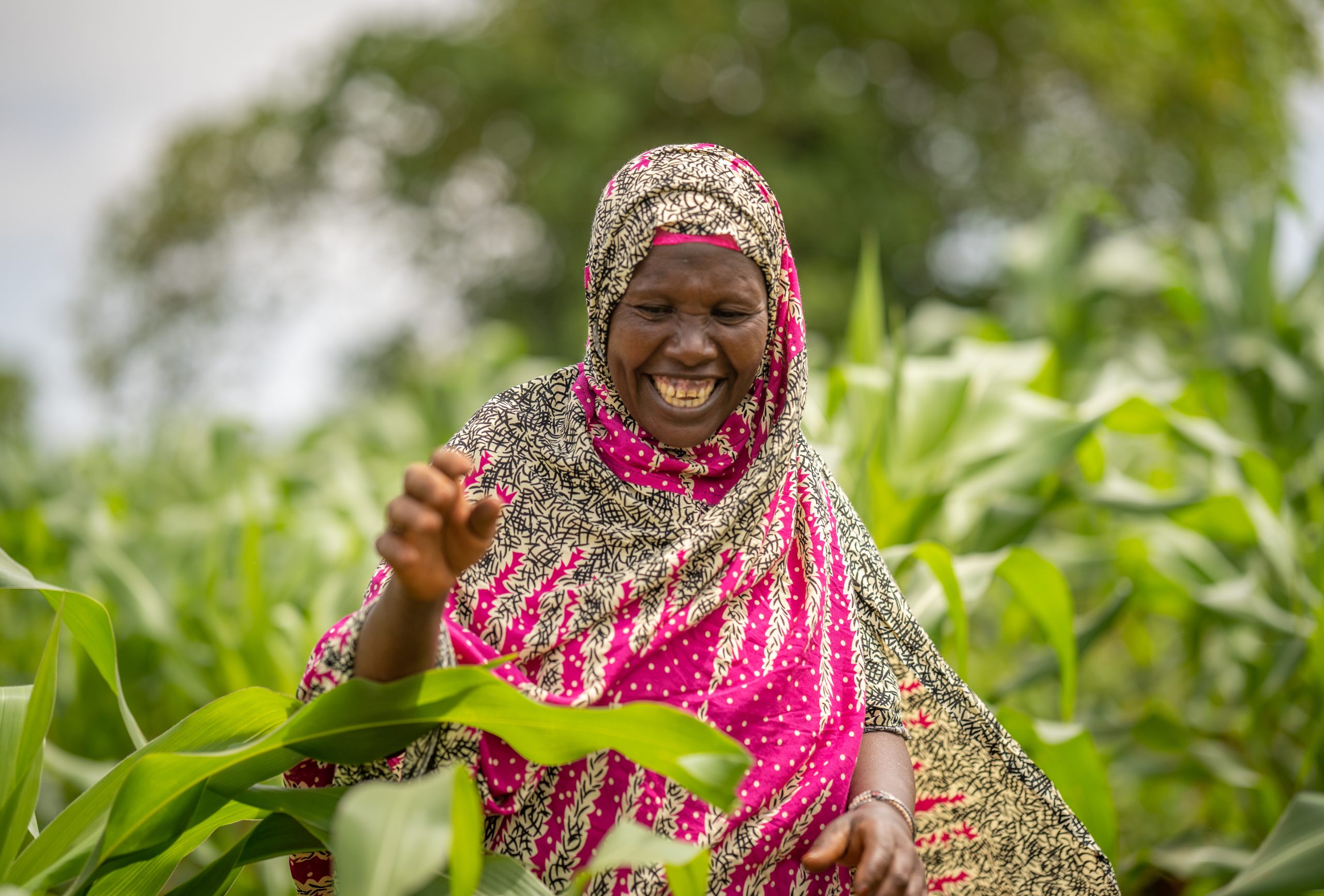Strengthening resilience in Burkina Faso’s climate- and conflict-affected communities

Burkina Faso is disproportionately affected by climate change and conflict. In the Nord and Centre-Nord regions, droughts, floods, and violent winds threaten agriculture and livestock, undermining livelihoods and increasing food insecurity for local communities.
At the same time, the country is marked by political instability and the presence of armed groups, which have forced more than two million people to flee their homes. Around one third of these internally displaced persons (IDPs) reside in the Nord and Centre-Nord regions. Competition over land, water, and forest resources fuels tensions between displaced populations and host communities and increases inequality among already vulnerable groups, including children, women, and the elderly.
Climate-related crises and conflict particularly affect women. Limited access to land, financial resources, and decision-making power threatens food security and makes it difficult to establish a stable livelihood. As societal structures break down, the risk of gender-based violence increases.
The project
The project aims to strengthen community resilience to climate shocks, conflict, and displacement in Burkina Faso’s Nord and Centre-Nord regions. Through capacity strengthening and financial support, women and young people – from both host communities and displaced populations – are equipped to lead efforts in early warning, sustainable management of natural resources, and climate adaptation.
Focusing on green entrepreneurship, agroecology, and sustainable resource management, Oxfam Denmark and its partners seek to strengthen women’s socio-economic and political independence – and thereby their ability to cope with and adapt to climate change.
The project adopts a holistic approach by engaging local authorities, religious leaders, vocational training centres, and other key actors in the development of sustainable solutions rooted in local structures and needs. The goal is to promote gender equality and ensure that women, youth, and marginalized groups participate actively in decision-making and in the creation of more sustainable and peaceful communities.
Anticipated results
The project seeks to strengthen the long-term resilience of vulnerable populations to climate change, conflict, and displacement through:
- Establishment of emergency stockpiles and contingency funds, including food kits, hygiene kits, and street lamps, for vulnerable groups.
- Distribution of equipment such as cooking pots, moulds, and buckets to women and youth to support income-generating activities and enable them to start their own sustainable businesses.
- Construction of sustainable and climate-resilient community infrastructure, including boulis and climate-resilient autonomous water points.
- Technical and financial support for women, IDPs, and other vulnerable groups affected by climate change to start income-generating, climate-resilient or green activities.
- Training of communities affected by climate change and conflict in agroecological and agricultural technical methods and techniques.
- Advocacy meetings with technical and financial partners as well as national decision-makers to promote support for early warning plans.
- Partnerships with technical vocational schools and agricultural research institutions to influence national agricultural policies towards more sustainable food systems.
Time period and funding
The project will be implemented from 2025 to 2027 and is supported by Danida with a total budget of 33 million DKK.
Pia Dyrhagen
Interim International Programme Director
International Programme


